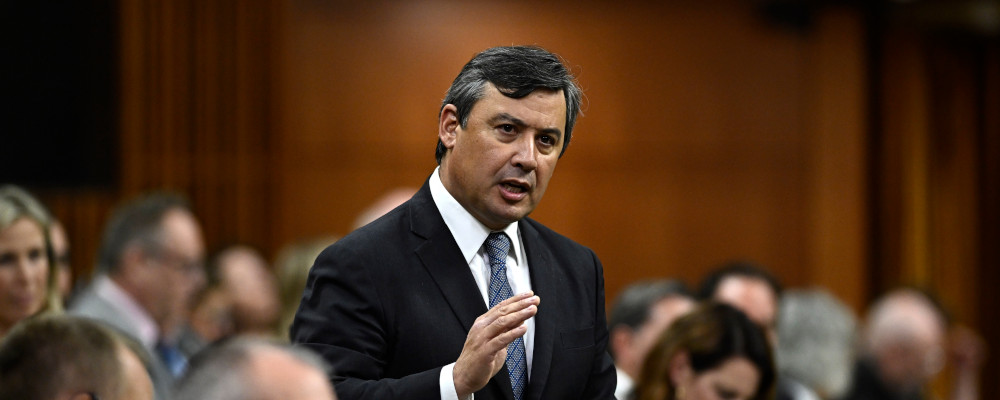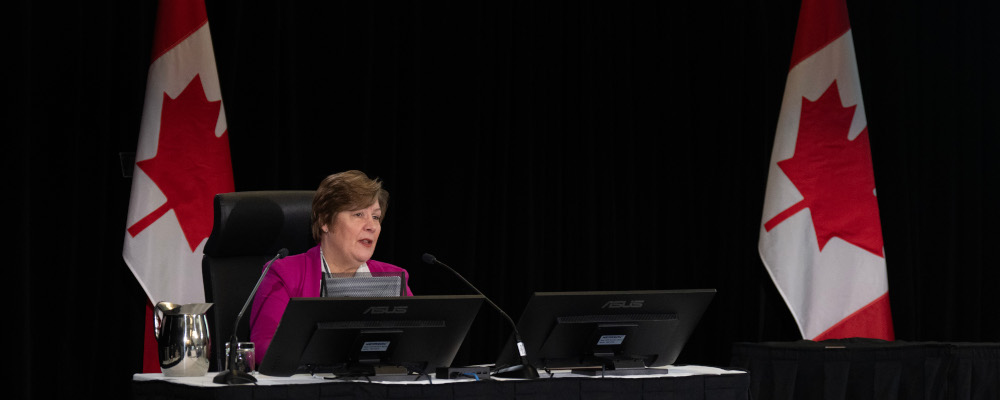Justice Marie-Josée Hogue’s foreign interference inquiry concluded its first week of public sessions earlier this month focusing on how the commission will balance transparency in the public interest with maintaining secrecy in Canada’s (and our foreign security partners’) national interest, all while plowing through volumes of sensitive intelligence.
The stakes for getting this balance right when the real probing sessions of the commission resume next month could not be higher for our democracy.
First, we must consider what this inquiry is about. Hogue picks up where special rapporteur David Johnston dejectedly left off in mid-2023, probing last year’s explosive media reports of CSIS leaks that China (now adding Russia, India, and other foreign states) have illegally attempted to tilt the balance of the 2019 and 2021 federal elections in favour of their interests. Furthermore, that Canadian political leaders and our intelligence institutions both dropped the ball and have demonstrated little will or capacity to pick it back up.
In this, we are not talking about the type of overt meddling that many voters find irksome or inappropriate, such as high-profile public statements by foreign political figures endorsing or criticizing certain candidates from afar.
Rather, we are talking about the clandestine efforts of opponent states to corrupt and exploit weaknesses in our democratic process to create a richer global environment for the fortunes of their competing authoritarian and supremacist ideologies.
Ensuring the election of sympathetic government officials and sowing disorder in established democracies are key strategies in the shady world of geopolitics. The details of alleged interference that have been building since last year have rightly shaken Canadian voters—which is the very intention of hostile ideological opponents when they stick their tentacles into our politics in the first place.
When it comes to our elections, the allegations that are damaging public confidence the most are stories concerning the PRC’s (and now the Indian government’s) support of preferred candidates in local federal nomination contests, where candidates for the election are selected by local party membership. Worse are allegations surrounding these stories that party leaders—including Prime Minister Justin Trudeau himself—were informed about these irregularities by CSIS and did little to nothing about them.
I have been on the ground during many such nominations, including my own feeble and naive attempt in 2015 to run in Scarborough, Ontario for the federal Liberals, and can confirm for readers —without impugning any public figures currently under the microscope—that the general form of concerns that have been raised about foreign actors leaning on local diaspora communities to get behind strategic candidates “or else” is apparent to everyone working on local campaigns, of all political stripes, in urban centres across Canada.
Busloads of confused-looking people of a homogeneous identifiable group wearing scannable bracelets and being herded to a local nomination vote do not tend to occur organically. The “or else” motivators that foreign states can ignite under their diasporas include the threat of yanking credentials to stay in Canada, as well as physical and financial threats at both the personal level and against family who may remain in countries of origin.
Such nominations are ripe for the picking, taking place largely outside the legal umbrella of the Federal Elections Act, and under the regulatory eye of private political parties and their own rules. Without much in the way of direct and easy-to-establish criminal liability, it would be understandable if political parties looked the other way once they calculate that any foreign interference gives them an electoral edge. Or it may be that the cost of intervening might be too high in terms of public scandal, embarrassment, and electoral loss.
Once elected, having preferred candidates in place in minority governments sows exactly the type of domestic procedural self-absorption that allows foreign states to pursue objectionable foreign policy with diminished international attention. A more ambitious goal is to have members of the government in place who are directly corruptible by donations and other means to directly represent the interests of foreign states in the legislative and parliamentary processes.
It is difficult to imagine a set of allegations that might surface that would better undermine the increasingly fragile public trust and investment in Canada’s electoral and political processes.
Likewise, it is difficult to imagine a time when compelling but untested notions of witting tolerance—or possibly encouragement—of foreign interference could do more damage than in our pandemic-to-endemic age of authority fatigue, suspicion of expertise, and outright conspiracy culture driven by a legacy of governmental ethical lapses and concerns over abuse of authority.
The needle for Justice Hogue to thread in her public treatment of these most sensitive national security matters is to ensure that the public learns what they have a right and need to know in order to restore confidence in the electoral pillar of democracy. She must do all this while avoiding the disclosure of information that the public simply cannot know for fear that it would reveal to watchful opponent states too much about the operations of our intelligence agencies.
The avenues being pursued by the commission show a great deal of promise but require some hammering out and follow-through in the lead-up to the resumption of hearings in late March.
First, the commission attempted an experiment: permitting the public release of redacted security documents and materials. Asking for 13 generic security documents as examples of what could be released to the public, CSIS obliged and produced a few lines of intact text interspersed within pages and pages of blacked-out documents, which reportedly involved 200 hours of labour to prepare. In other words, not a realistic approach.

In its place, we are to proceed with the commissioner having the right to review all sensitive security materials—documentary and spoken testimony—and vigorously challenge participant efforts to withhold any “top secret” and classified information from, at least, an in camera review.
While there have been reports that the commissioner will receive no further information than what was available to Johnston, that is not my reading of her terms of reference. It will be incumbent on Justice Hogue to push for the widest interpretation of those terms to obtain any information she deems relevant to her investigation.
Justice Hogue will then direct CSIS and other government agencies to provide public summaries of the sensitive materials that she will sign off on as true and reasonable representations of actual evidence the commission has reviewed in full.
To my mind, this is the value of a formal commission of inquiry conducted by a judge over the special rapporteur approach, however honourable Johnston may be as a person.
Specifically, Justice Hogue can lean on the Inquiries Act to pressure the government to make a better effort to disclose information (at least to her behind closed doors). She can then press agencies to produce summaries for the public that hold nothing back not truly in Canada’s national strategic interests to withhold.
What I think the public can and should therefore expect from this inquiry—if it serves its prime purpose of slowing the haemorrhaging of trust in public institutions and political processes—are firm conclusions by the time of the interim report in May. It should clarify whether any member of the current government or other political parties were told about attempts or successes to compromise nominations, campaign funding, and election processes.
Further, the commissioner ought to be able to provide clear statements regarding what any political leader did with this information. Did they take actions that were objectively reasonable in the circumstances? Or was there any witting encouragement or negligence in the face of such information either for untoward electoral gain or simply to avoid scandal and embarrassment?
Later this year, when the commissioner turns to more systemic issues involving the capacity of our institutions to manage foreign interference long-term, the public should expect firm conclusions about gaps in intelligence operations and agency understandings of national security laws, as well as weaknesses in the laws themselves.
Faced with an intelligence culture of reticence and a political culture of winking at ethics, producing a set of reports that will serve the dual interests of reducing public anger and withdrawal from the political processes will require all the legal savvy and personal mettle Justice Hogue can muster.
Recommended for You

‘Our role is to ask uncomfortable questions’: The Full Press on why transgender issues are the third rail of Canadian journalism

Need to Know: Mark Carney’s digital services tax disaster

Theo Argitis: Carney is dismantling Trudeau’s tax legacy. How will he pay for his plan?

Kirk LaPointe: B.C.’s ferry fiasco is a perfectly Canadian controversy





